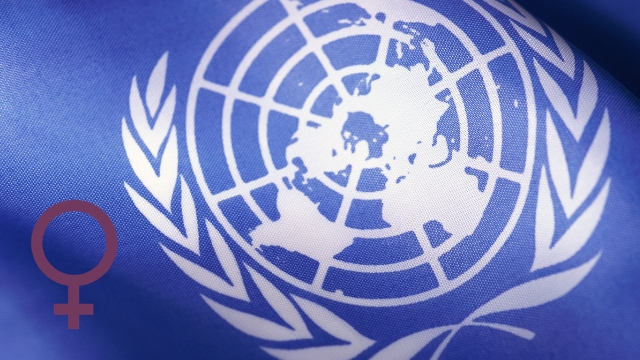The statement, proposed by Mexico and Finland, attracted signatures from 57 countries. Australia was not one of them.
Australia’s refusal to support the statement is the latest event to attract criticism in the wake of its election to the UN Human Rights Council in 2017. Australia’s election to the council was met with significant criticism, primarily with respect to its treatment of Indigenous people and offshore detention processes.
What was the statement about?
The statement contained a commitment to “universal protection of women’s sexual and reproductive health, comprehensive sexuality education and access to safe abortion”.
Human Rights Law Centre (HRLC) response
The HRLC has criticised Australia’s decision. Their Legal Director, Edwina MacDonald outlined that the ability to make choices about reproductive health is inextricably linked to gender equality.
“No government can truly support gender equality and human rights without supporting access to safe abortions and reproductive rights”, she said.
PM Scott Morrison’s response
Prime Minister Scott Morrison told reporters he did not want to engage in discussion about abortion.
“I don’t find that [abortion] debate tends to unite Australians. I am not going to engage in the political elements of that discussion because frankly, I don’t think it is good for our country,” Morrison said.
Key Takeaways
- Australia declined to back the UN's International Women's Day statement urging for the safeguarding of women's rights to bodily autonomy.
- The refusal follows Australia's criticized membership in the UN Human Rights Council since 2017, particularly concerning indigenous peoples and offshore detention.
- The UN statement, endorsed by 57 countries, was co-proposed by Mexico and Finland, advocating for women's sexual and reproductive health rights, including access to safe abortions.
- Australia's stance sparked debate, reflecting broader discussions on abortion laws that vary across Australian states, with some providing more liberal access than others.
Abortion laws
Laws relating to abortion vary between states.
Abortion remains a criminal offence in New South Wales unless a doctor believes that a woman’s physical and/or mental health would be at risk if the pregnancy was to continue.
The following is a summary of abortion laws across Australia:
Queensland: New legislation came into effect in December 2018, the effect of which was the legalisation of abortion up to 22 weeks. Post 22 weeks, a woman is required to obtain the approval of two doctors before an abortion can be performed. The legislation also prohibits anti-abortion protests from occurring within 150m of termination clinics.
Victoria: Abortion is legal in Victoria for up to 24 weeks. The approval of two doctors is required if an abortion is to be conducted post 24 weeks. Like Queensland, it is illegal to protest within 150m of a termination clinic.
South Australia: Abortion is legal in SA if two doctors conclude that the woman’s physical or mental health will be in danger if the pregnancy continues. An abortion may also be performed if there is a serious abnormality in the foetus.
ACT: Abortion is legal in the ACT. It must be performed by a medical professional. Exclusion zones for protests may be established at the discretion of the Health Minister.
Western Australia: Abortion is legal up to 20 weeks.
Northern Territory: Abortion is legal in the NT if performed within the first 14 weeks of the pregnancy and it is approved by a doctor. Two doctors must approve the procedure if it is performed between 14-23 weeks. Abortion is illegal if it is performed after 23 weeks unless it is performed to save the pregnant woman’s life.
Tasmania: Abortion is legal in Tasmania if it is performed within the first 16 weeks of pregnancy. Two doctors must approve the procedure if it is to be performed after 16 weeks. Protests must occur at least 150m from termination clinics.
Further reading can be found here.
For advice or representation for a criminal matter please contact Hamilton Janke Lawyers 24 hours a day, 7 hours a week on 4038 1666 (office hours) or 0422 050 502 (24/7).
Written By

James Janke
James Janke is founding partner at Hamilton Janke Lawyers, and has more then decade of experience as a Criminal Defence Lawyer. Admitted to both the Supreme Court of New South Wales and High Court of Australia




